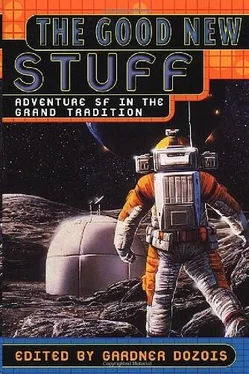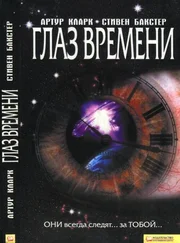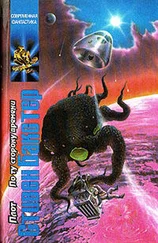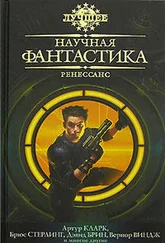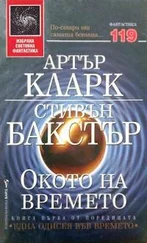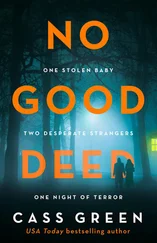Стивен Бакстер - The Good New Stuff
Здесь есть возможность читать онлайн «Стивен Бакстер - The Good New Stuff» весь текст электронной книги совершенно бесплатно (целиком полную версию без сокращений). В некоторых случаях можно слушать аудио, скачать через торрент в формате fb2 и присутствует краткое содержание. Год выпуска: 2002, ISBN: 2002, Издательство: St. Martin's Griffin, Жанр: Фантастика и фэнтези, на английском языке. Описание произведения, (предисловие) а так же отзывы посетителей доступны на портале библиотеки ЛибКат.
- Название:The Good New Stuff
- Автор:
- Издательство:St. Martin's Griffin
- Жанр:
- Год:2002
- ISBN:0-312-26456-9
- Рейтинг книги:3 / 5. Голосов: 1
-
Избранное:Добавить в избранное
- Отзывы:
-
Ваша оценка:
- 60
- 1
- 2
- 3
- 4
- 5
The Good New Stuff: краткое содержание, описание и аннотация
Предлагаем к чтению аннотацию, описание, краткое содержание или предисловие (зависит от того, что написал сам автор книги «The Good New Stuff»). Если вы не нашли необходимую информацию о книге — напишите в комментариях, мы постараемся отыскать её.
The Good New Stuff — читать онлайн бесплатно полную книгу (весь текст) целиком
Ниже представлен текст книги, разбитый по страницам. Система сохранения места последней прочитанной страницы, позволяет с удобством читать онлайн бесплатно книгу «The Good New Stuff», без необходимости каждый раз заново искать на чём Вы остановились. Поставьте закладку, и сможете в любой момент перейти на страницу, на которой закончили чтение.
Интервал:
Закладка:
"So how did anything survive?"
Scholes shrugged. "Maybe the starfarers had some kind of inertial shielding. How can we know? Anyway the ship was wrecked; and the density of the smashed-up hull material caused it to sink into the bulk of the planet, through the Caloris puncture."
"The crew were stranded. So they sought a place to survive. Here, on Mercury."
"I get it," Dixon said. "The only viable environment, long term, was the Chao Meng-Fu ice cap."
Scholes spread his hands. "Maybe the starfarers had to engineer descendants, quite unlike the original crew, to survive in such conditions. And perhaps they had to do a little planetary engineering too; they may have had to initiate some of the hydrothermal vents which created the enclosed liquid-water world down there. And so—"
"Yes?"
"And so the creature we've dug out of the ice is a degenerate descendant of those ancient star travelers, still swimming around the Chao sea."
Scholes fell silent, his eyes on Larionova.
Larionova stared into her coffee. "A 'degenerate descendant.' After five billion years?
Look, Scholes, on Earth it's only three and a half billion years since the first prokaryotic cells. And on Earth, whole phyla— groups of species— have emerged or declined over periods less than a tenth of the time since the Caloris Basin event. Over time intervals like that, the morphology of species flows like hot plastic. So how is it possible for these mercurics to have persisted?"
Scholes looked uncertain. "Maybe they've suffered massive evolutionary changes," he said. "Changes we're just not seeing. For example, maybe the worm parasite is the malevolent descendant of some harmless creature the starfarers brought with them."
Dixon scratched his neck, where the suit-collar ring of dirt was prominent. "Anyway, we've still got the puzzle of the mercuric's burrowing into the ice."
"Hmm." Scholes sipped his cooling coffee. "I've got a theory about that, too."
"I thought you might," Larionova said sourly.
Scholes said, "I wonder if the impulse to climb up to the surface is some kind of residual yearning for the stars."
"What?"
Scholes looked embarrassed, but he pressed on: "A racial memory buried deep, prompting the mercurics to seek their lost home world…. Why not?"
Larionova snorted. "You're a romantic, Kevin Scholes."
A telltale flashed on the surface of the data desk. Dixon leaned over, tapped the telltale and took the call.
He looked up at Larionova, his moon-like face animated. "Irina. They've found another mercuric," he said.
"Is it intact?"
"More than that." Dixon stood and reached for his helmet. "This one isn't dead yet…."
The mercuric lay on Chao's dust-coated ice. Humans stood around it, suited, their faceplates anonymously blank.
The mercuric, dying, was a cone of bruised-purple meat a yard long. Shards of shattered transparent carapace had been crushed into its crystallizing flesh. Some of the cilia, within the carapace, stretched and twitched. The cilia looked differently colored from Dixon's reconstruction, as far as Larionova could remember: these were yellowish threads, almost golden.
Dixon spoke quickly to his team, then joined Larionova and Scholes. "We couldn't have saved it. It was in distress as soon as our core broke through into its tunnel. I guess it couldn't take the pressure and temperature differentials. Its internal organs seem to be massively disrupted…."
"Just think." Kevan Scholes stood beside Dixon, his hands clasped behind his back. "There must be millions of these animals in the ice under our feet, embedded in their pointless little chambers. Surely none of them could dig more than a hundred yards or so up from the liquid layer."
Larionova switched their voices out of her consciousness. She knelt down, on the ice; under her knees she could feel the crisscross heating elements in her suit's fabric.
She peered into the dulling sonar-eyes of the mercuric. The creature's mandibles— prominent and sharp— opened and closed, in vacuum silence.
She felt an impulse to reach out her gloved hand to the battered flank of the creature: to touch this animal, this person, whose species had, perhaps, traveled across light-years— and five billion years— to reach her….
But still, she had the nagging feeling that something was wrong with Scholes' neat hypothesis. The mercuric's physical design seemed crude. Could this really have been a starfaring species? The builders of the ship in Caloris must have had some form of major tool-wielding capability. And Dixon's earlier study had shown that the creature had no trace of any limbs, even vestigially….
Vestigial limbs, she remembered. Lethe.
Abruptly her perception of this animal— and its host parasite— began to shift; she could feel a paradigm dissolving inside her, melting like a Mercury snowflake in the Sun.
"Dr. Larionova? Are you all right?"
Larionova looked up at Scholes. "Kevan, I called you a romantic. But I think you were almost correct, after all.
But not quite.
Remember we've suggested that the parasite— the infestation— changes the mercuric's behavior, causing it to make its climb."
"What are you saying?"
Suddenly, Larionova saw it all. "I don't believe this mercuric is descended from the starfarers— the builders of the ship in Caloris. I think the rise of the mercurics' intelligence was a later development; the mercurics grew to consciousness here, on Mercury. I do think the mercurics are descended from something that came to Mercury on that ship, though. A pet, or a food animal— Lethe, even some equivalent of a stomach bacteria. Five billion years is time enough for anything. And, given the competition for space near the short-lived vents, there's plenty of encouragement for the development of intelligence, down inside this frozen sea."
"And the starfarers themselves?" Scholes asked. "What became of them? Did they die?"
"No," she said. "No, I don't think so. But they, too, suffered huge evolutionary changes. I think they did devolve, Scholes; in fact, I think they lost their awareness."
"But one thing persisted within them, across all this desert of time. And that was the starfarers' vestigial will to return— to the surface, one day, and at last to the stars…."
It was a will which had survived even the loss of consciousness itself, somewhere in the long, stranded aeons: a relic of awareness long since transmuted to a deeper biochemical urge — a will to return home, still embedded within a once-intelligent species reduced by time to a mere parasitic infection.
But it was a home which, surely, could no longer exist.
The mercuric's golden cilia twitched once more, in a great wave of motion which shuddered down its ice-flecked body.
Then it was still.
Larionova stood up; her knees and calves were stiff and cold, despite the suit's heater. "Come on," she said to Scholes and Dixon. "You'd better get your team off the ice as soon as possible; I'll bet the universities have their first exploratory teams down here half a day after we pass Earth the news."
Dixon nodded. "And Thoth?"
"Thoth? I'll call Superet. I guess I've an asteroid to order…."
And then, she thought, at last I can sleep. Sleep and get back to work.
With Scholes and Dixon, she trudged across the dust-strewn ice to the bubble shelters.
She could feel the Ice under her belly… but above her there was no Ice, no water even, an infinite nothing into which the desperate pulses of her blinded eyes disappeared without echo.
Astonishingly— impossibly— she was, after all, above the Ice. How could this be? Was she in some immense upper cavern, its Ice roof too remote to see? Was this the nature of the Universe, a hierarchy of caverns within caverns?
Читать дальшеИнтервал:
Закладка:
Похожие книги на «The Good New Stuff»
Представляем Вашему вниманию похожие книги на «The Good New Stuff» списком для выбора. Мы отобрали схожую по названию и смыслу литературу в надежде предоставить читателям больше вариантов отыскать новые, интересные, ещё непрочитанные произведения.
Обсуждение, отзывы о книге «The Good New Stuff» и просто собственные мнения читателей. Оставьте ваши комментарии, напишите, что Вы думаете о произведении, его смысле или главных героях. Укажите что конкретно понравилось, а что нет, и почему Вы так считаете.
